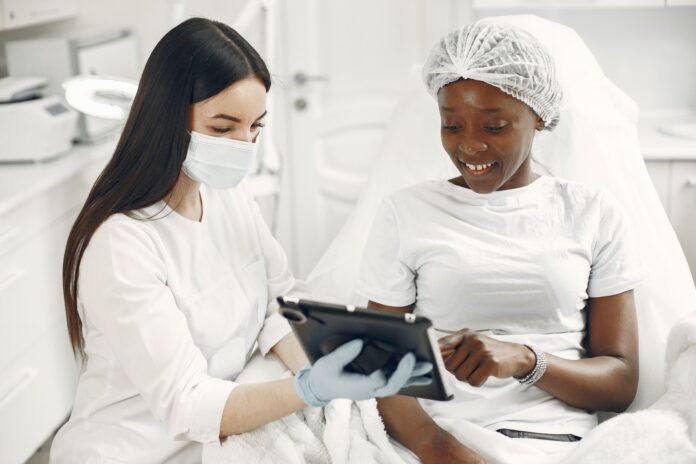Acne, commonly known as pimples, is a skin condition that occurs when hair follicles become clogged with oil and dead skin cells. The mixture of oil and cells creates a breeding ground for bacteria, which can cause inflammation and redness. Pimples can occur on the face, neck, chest, back, or shoulders.
Tips to keep your skin safe
There is no surefire way to prevent pimples, but there are some things you can do to help keep your skin clear and reduce your risk of developing pimples. Here are some tips:
- Wash your face twice a day with a gentle cleanser. Be sure to remove all makeup before washing.
- Exfoliate your skin regularly with a gentle scrub or exfoliating pad. This will help prevent dead skin cells from building up and causing clogged pores.
- Use an oil-free moisturizer to keep your skin hydrated.
- Choose makeup and hair products that are non-comedogenic (won’t clog pores).
- Keep your hands off your face as much as possible. Touching your face can transfer bacteria and oils from your hands to your skin, which can trigger breakouts.
- Avoiding picking or squeezing pimples, as this can cause scarring.
But have you ever wondered which skin type is prone to all the pimples and acne. People often say that oily skin gets more pimples. We are here to explain
Is oily skin prone to pimples?
Oily skin is one of the main risk factors for developing pimples. When your sebaceous glands produce too much oil, it can clog your pores and lead to breakouts. If you have oily skin, you may need to wash your face more than twice a day and use oil-free products. You may also want to try a medicated cleanser or astringent to help control the oil.
Risk factors for pimples:
There are several things that can increase your risk of developing pimples, including:
- Hormonal changes, such as those that occur during puberty or pregnancy
- Certain medications, such as corticosteroids or lithium
- Oily skin
- A diet high in sugar and refined carbs
- Stress
Clinical Management
There are many things you can do to treat pimples, but there is no one-size-fits-all solution. Some people may need to see a dermatologist to get help with their breakouts. Treatments for pimples include:
- Topical treatments, such as gels, creams, or lotions that contain benzoyl peroxide, salicylic acid, or retinoids
- Oral medications, such as antibiotics, birth control pills, or isotretinoin
- Procedures, such as laser therapy or chemical peels
All the treatments and remedies are legit. But is there a solution that tops them all?
What is the best way to treat pimples?
There is no one best way to treat pimples. The best approach is to use a combination of treatments that target the different causes of pimples. For example, you might use a topical treatment with benzoyl peroxide to kill bacteria and a topical retinoid to reduce inflammation. You might also take an oral antibiotic to control the bacterial infection. If you have severe pimples, you may need to see a dermatologist for treatment. Dermatologists can prescribe oral medications, such as antibiotics, birth control pills, or isotretinoin, and they can perform procedures, such as laser therapy or chemical peels.
Difference between pimples and acne
Pimples are small, localized inflammations of the skin that can occur anywhere on the body. They are typically filled with pus and can be painful. Acne is a broader term that refers to any type of pimple, including blackheads, whiteheads, and cysts. Acne is a common skin condition that affects people of all ages.
Consult a doctor
If you have severe or persistent pimples, you should see a doctor. A doctor can prescribe stronger medications and perform procedures, such as laser therapy or chemical peels. You can visit Dermatologist in Lahore or Best Dermatologist in Karachi for more help.
